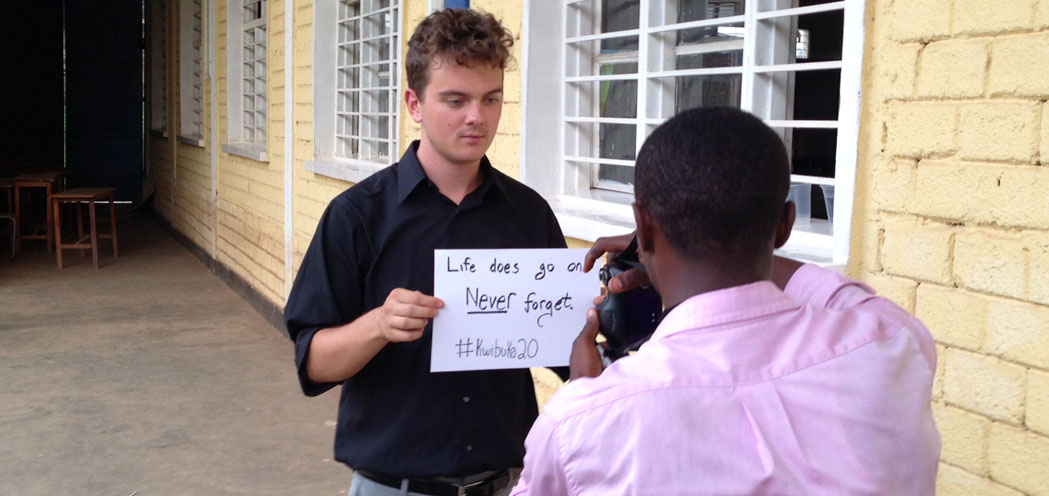Memorials, Government Visits and Nature Trips on Second Half of Problems Without Passports Rwanda

The Problems Without Passports trip to Rwanda ends today after a busy second week that included visits to some of Rwanda’s most stunning nature sites and opportunities for the students to meet politicians and international representatives.
On Friday, June 27, the students interviewed professionals active in the field of post-genocide reconstruction at Kigali Genocide Memorial. These interviews will provide an important data point in their research related to specific ways Rwanda can continue to rebuild after genocide. They also visited a youth art exhibition, and, while there, had the opportunity to participate in a Kwibuka20 memorial project in which they recorded messages in honor of the 20th anniversary of the Genocide Against the Tutsi.
Monday was dedicated to meetings with government representatives to focus on contemporary issues and explore how today’s culture has been impacted by the genocide. The class met with the National Unity and Reconciliation Commission to discuss how to balance memorializing and preventing genocide and the major challenges facing the government of Rwanda.
On Tuesday, on their way to the Murambi Memorial site, the class visited their guide Yannick Tona’s childhood village, and paid tribute to the family members he lost in 1994.
The class had a busy day of meetings on Thursday with international representatives in Rwanda – the Swedish Charge d’affaires, British High Commissioner, Chinese Embassy and French Ambassador. The students spoke to the representatives about the roles they play in forging a new path forward for Rwanda and overcoming the challenges of the past.
The group attended the historic Kwibohora20 commemoration ceremony on Friday, celebrating 20 years of liberation with 30,000 Rwandans in the Amahoro Stadium.
”On the 4th of July in 1994, the darkest chapter in our history was brought to a close, and life could begin anew,” President Paul Kagame said at the ceremony. “Too much was lost to commemorate that day as a triumph, and our liberation struggle is far from over. But we have come far enough, these past 20 years, to permit ourselves a moment of sober satisfaction, as we recommit to the journey ahead.”
Through their research, the students are studying those accomplishments that Rwanda can be proud of, and trying to understand how to increase the country’s reasons to celebrate 20 years from now.
To wrap up the last two days of the trip before heading home today, the class went on a gorilla trek in the mountains to experience the ways in which tourism is contributing to the reconstruction of Rwanda. Finally, the group enjoyed a private performance by the Mashirika performing arts group.